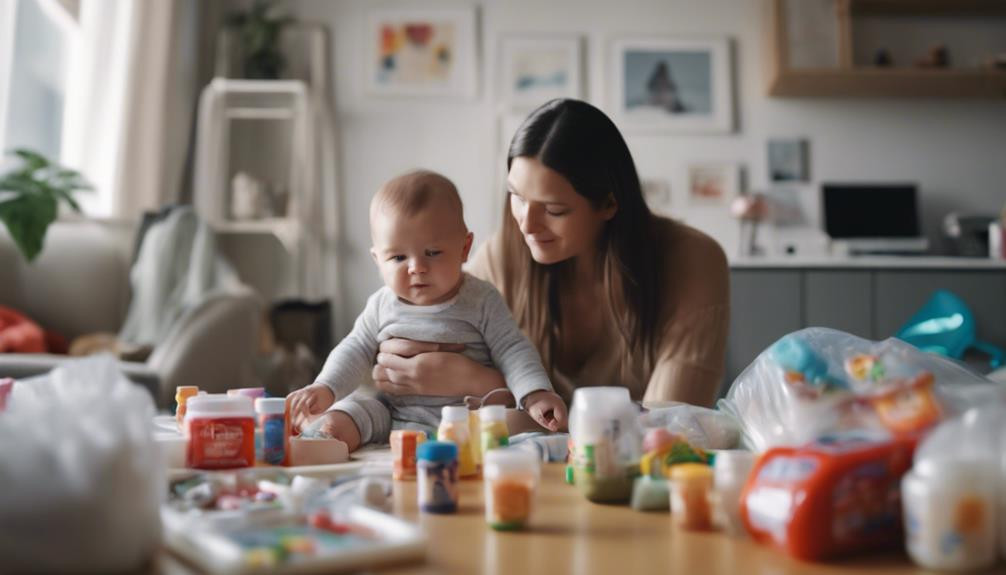The Hidden Cost of Stay-at-Home Parenting in Ireland
A recent study by Royal London Ireland has sent shockwaves through the nation, revealing a stark reality about the financial value of stay-at-home parents in Ireland. The research, which surveyed 1,000 adults, found that a staggering 89% underestimate the true cost of employing someone to carry out the responsibilities of a stay-at-home parent. The study's findings paint a picture of a significant disparity between perception and reality, highlighting the often-invisible economic contribution of homemakers.
The Staggering Figure: €57,140
The study calculated that the annual cost of employing someone to perform the various duties of a stay-at-home parent in Ireland is a whopping €57,140. This figure represents a significant increase from €54,590 in 2023 and a dramatic rise from €40,560 in 2015, showcasing a steady upward trend in the financial value of this role. The calculations considered a range of tasks, including childcare, household management, cooking, cleaning, and children's transportation.
Breaking Down the Costs
The research meticulously broke down the cost based on the hourly rate for professionals providing equivalent services. For example, the cost of a childcare provider was estimated at €14.89 per hour, a cleaner at €12.93, a general cook at €13.76, and so on. Adding up these hourly rates for the various tasks performed daily by a stay-at-home parent resulted in the striking annual figure of €57,140.
Public Perception vs. Reality
The survey's most striking revelation is the widespread underestimation of a stay-at-home parent's economic contribution. A mere 11% of respondents correctly estimated the cost to be over €50,000, demonstrating a significant gap between perceived value and the actual financial equivalent. Almost a third (around 30%) of those surveyed estimated the value to be between €20,000 and €30,000, highlighting the pervasive undervaluing of this crucial role. Interestingly, women were almost three times more likely than men to accurately estimate this figure, suggesting that lived experience plays a significant role in shaping perceptions.
Regional Variations and Age Differences
The study also unearthed interesting regional variations. Those residing in Munster demonstrated the most accurate understanding of the financial value of stay-at-home parenting, with nearly 30% suggesting a salary exceeding €40,000. Age played a factor too, with the 45-54 age group showing the highest accuracy in their estimations, possibly reflecting their own experiences in raising families.
The Unseen Value of Stay-at-Home Parents
Karen O’Flaherty, Senior Propositions Executive at Royal London Ireland, emphasized the significance of these findings. She highlighted the fact that while many appreciate the role of stay-at-home parents, quantifying their economic value often proves challenging. This lack of recognition contributes to a 43% gap between public perception and the true cost. O’Flaherty further explained that stay-at-home parents juggle a wide array of responsibilities, extending far beyond basic household chores. They provide crucial childcare, emotional support, household management, and financial budgeting, illustrating the depth and breadth of their daily contributions.
The Need for Recognition
O’Flaherty emphasized the need for recognizing the role of stay-at-home parents not merely as an invisible contribution, but as an essential job that deserves support and consideration in financial planning. This crucial point underscores the importance of adequately factoring in the financial value of this role when considering life assurance and pension plans.
The Ongoing Debate and Future Implications
This study sparks a crucial conversation about the economic contributions of stay-at-home parents and the societal implications of undervaluing their work. The increasing costs highlighted by Royal London Ireland's research call for a reconsideration of how we perceive and support this crucial role within families and the wider community. It remains essential that future policies and financial planning acknowledge the substantial economic contribution of stay-at-home parents, who contribute significantly to family well-being and societal stability. The ongoing dialogue surrounding this important issue will hopefully result in increased awareness and a more accurate reflection of the true value of this often-overlooked role. The financial implications of failing to recognize and account for their economic contribution are significant, not just for families, but for the country as a whole. Furthermore, the gender disparity observed in accurately valuing this role highlights a need for a broader societal conversation about the division of labor and caregiving responsibilities in families.
A Call for Action: Recognizing the Essential Role
The findings from Royal London Ireland's research present a clear call to action. It's time to move beyond underestimating the monetary worth of stay-at-home parents and acknowledge their essential role in society. This recognition should manifest in various ways, including financial planning, social support systems, and public discourse. Recognizing the economic value of stay-at-home parents is not merely about assigning a monetary figure; it is about acknowledging the immense contributions they make to their families and society as a whole. The ongoing conversation sparked by this research is critical to creating a society that truly values the immeasurable contributions of stay-at-home parents.

















